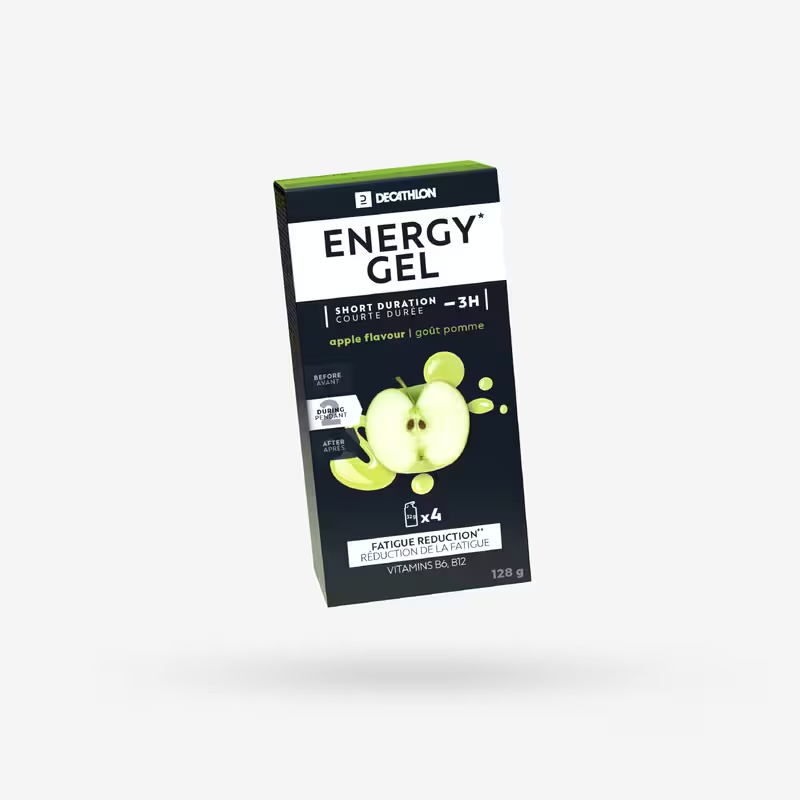Introduction to Sports Nutrition
Understanding sports nutrition is key for any athlete. It involves planning and consuming the right foods at the right times. Sports nutrition products:This improves performance and recovery.
Sports nutrition products include a range of items. These items aim to support an athlete’s diet. They provide essential nutrients. These nutrients fuel workouts and aid in recovery.
Proper sports nutrition enhances energy levels. It also boosts endurance. Moreover, it reduces muscle damage and inflammation. This matters greatly for athletes.
Nutritionists and athletes focus on macronutrients and micronutrients. They understand that a balanced intake is critical. This includes carbohydrates, proteins, and fats. Vitamins and minerals are also part of the equation.
Athletes have different dietary needs compared to non-athletes. Their bodies undergo more stress. Hence, they require more nutrients for performance and repair.
In essence, sports nutrition is the foundation of athletic success. It can make the difference in achieving personal bests. Using sports nutrition products is a practical way to meet nutritional demands.
Overall, embracing sports nutrition leads to better athletic outcomes. It helps athletes train harder, perform better, and recover quicker.

The Role of Macronutrients in Athletic Performance
Macronutrients are vital for athletes. They include carbohydrates, proteins, and fats. Each plays a unique role in boosting athletic performance.
Carbohydrates
Carbohydrates are the main energy source for athletes. They fuel the muscles during intense workouts. Good sources include fruits, grains, and vegetables. Athletes should consume them before and after training for optimal energy.
Proteins
Proteins are essential for muscle repair and growth. They help recover from sports activities. Examples are chicken, fish, eggs, and dairy products. A diet rich in protein supports muscle recovery.
Fats
While fats are often less emphasized, they are crucial too. They provide long-term energy and aid in nutrient absorption. Healthy fats come from avocados, nuts, and olive oil. Athletes need to include a moderate amount of fats in their diet.
Overall, understanding and managing the intake of these macronutrients can enhance athletic performance significantly. They help maintain energy levels, promote muscle recovery, and ensure overall athletic health.
Importance of Hydration for Athletes
Hydration is crucial for athlete performance and safety. It impacts every aspect of an athlete’s performance. Staying hydrated helps maintain endurance and delay fatigue during intense activities.
Drinking the right amount of fluids is essential before, during, and after exercise. This helps replace the fluids lost through sweat. It’s important to drink regularly, not just when you feel thirsty.
Water is the best choice for most workouts. However, sports drinks are beneficial during long or high-intensity sessions. They provide electrolytes like sodium and potassium, which support nerve function and muscle contraction. Moreover, they have carbohydrates that help maintain energy levels.
For athletes, monitoring color of urine provides a simple way to assess hydration levels. Clear or light yellow urine typically indicates good hydration. On the other hand, dark urine can mean dehydration.
In summary, effective hydration strategies are key for maximizing athletic performance. They aid in preventing injuries related to dehydration. Coaches and athletes should prioritize proper hydration to ensure peak performance in sports activities.

Pre-Workout Nutrition Guidelines
Pre-workout nutrition is vital for maximizing performance and endurance. Understanding what to eat before training can greatly impact an athlete’s capability and results. Here are some effective guidelines for pre-workout nutrition:
- Timely carbohydrate intake: Eat simple carbs 30-45 minutes before workout. This can include fruits or whole grains. They provide quick energy.
- Include moderate proteins: Include a moderate amount of proteins. Options include yogurt or a smoothie with protein powder. Proteins help in preparing muscles for the strain of exercise.
- Stay hydrated: Drink water before starting your workout. It boosts performance and prevents early fatigue.
- Limit fats and heavy meals: Avoid large meals and high fat foods pre-workout. They slow digestion and can make you feel sluggish.
- Consider individual needs: Tailor your pre-workout meal based on the duration and intensity of the exercise. Listen to your body.
By following these nutrition guidelines, athletes can ensure they are fueled and ready for optimal performance. Sports nutrition products, designed specifically for athletes, can also be incorporated for an extra boost.
Post-Workout Recovery and Nutrition
After tough workouts, the body needs to repair and replenish. That’s where post-workout nutrition comes in. The right nutrients can speed up recovery. They can also rebuild muscle tissues and restore energy levels.
Consume protein and carbohydrates: These are key after exercise. Proteins repair and build muscles. Carbohydrates refill energy stores. Athletes should aim for a mix of both soon after their workout.
Rehydrate effectively: Water lost through sweat needs replacing. Drinking enough fluids after working out is crucial. It helps maintain bodily functions and muscle recovery.
Include micronutrients: Vitamins and minerals support the recovery process. They can come from fruits, vegetables, and sports nutrition products.
Time your meals right: Eating within 45 minutes of exercising can utilize nutrients best. It’s called the ‘anabolic window’. During this time, muscles absorb nutrients more efficiently.
Listen to your body: Some need a full meal post-workout, others do well with just a snack. Understanding your body’s signals is important.
By focusing on these recovery nutrition strategies, athletes can get back to training faster. Sports nutrition products designed for recovery might include protein shakes or bars. They offer a convenient option for busy athletes to get the necessary nutrients on the go.

The Benefits of Sports Supplements
Sports supplements offer many benefits for athletes. They enhance performance and reduce recovery time. Typically, these supplements include proteins, amino acids, and electrolytes. They fill nutritional gaps and provide targeted support. These products cater to various athletic needs.
For instance, protein powders speed up muscle repair. Creatine boosts strength and power during workouts. Electrolyte drinks help maintain fluid balance. This supports optimal muscle function and hydration. Vitamins and minerals aid overall body functions. They ensure athletes perform at their best.
Moreover, sports supplements are convenient. Athletes can use them on the go, ensuring they meet their nutritional needs without hassle. Supplements also vary in form. Options include bars, powders, and ready-to-drink shakes. This variety makes it easy for athletes to incorporate them into their diet.
However, it’s crucial to choose high-quality sports supplements. Athletes should opt for products tested for safety and efficacy. Consulting a sports nutritionist can help make informed choices. This is important to safeguard health and optimize performance.
In summary, sports supplements can be a powerful tool for athletes. They support rigorous training and competition demands. By using these products wisely, athletes can gain a competitive edge.
Tailoring Nutrition Strategies for Specific Sports
Different sports demand unique nutrition strategies. Each sport places specific demands on an athlete’s body.
Identify Key Nutrients
Every sport has specific nutrient needs. High intensity sports may need more carbohydrates. Endurance sports require sustained energy sources. Identify and include these nutrients accordingly.
Customize Hydration Plans
Custom hydration plans are key. Some sports result in more sweat loss. These sports may need more electrolytes. Sports nutrition products can help balance hydration.
Caloric Adjustments
Adjust calories based on activity level. High endurance sports often need more calories. Adjust your intake to match your energy expenditure. This ensures optimal performance.
Recovery Nutrients
Different sports have different recovery needs. Tailor your post-workout meals to manage recovery efficiently. Sports nutrition products designed for recovery can be vital.
Special Considerations
Consider other factors like altitude and temperature. These affect how the body uses energy. Adapt your nutrition strategy to suit these conditions.
By tailoring nutrition to specific sports, athletes can optimize their performance and recovery effectively.

Legal and Safety Considerations in Sports Nutrition
When diving into the world of sports nutrition products, it’s critical to weigh legal and safety aspects. Athletes must navigate these waters with care. Here are the key points to consider:
Understand supplement regulations: Not all sports supplements are regulated equally. In some regions, these products undergo strict testing. Elsewhere, the rules may be lax. It’s wise for athletes to familiarize themselves with the regulations governing supplements in their country.
Check for banned substances: Some sports nutrition products may contain substances banned by sports authorities. Athletes should always check product labels and cross-reference with banned substance lists from organizations like WADA (World Anti-Doping Agency).
Quality and purity are paramount: Select supplements from reputable sources. High-quality products have been tested for purity. Avoiding contaminants is essential for health and performance.
Seek professional guidance: Consulting with a sports nutritionist or dietitian is crucial. They can provide personalized advice. This ensures the supplements fit the athlete’s specific dietary needs and goals.
Be aware of potential interactions: Some supplements can interact with medications or other supplements. These interactions could be harmful. Athletes should discuss their full supplement regimen with a healthcare provider.
Listen to your body’s response: Monitoring how your body reacts to supplements is important. Any negative reactions should prompt a reevaluation of the product’s use.
Stay updated with research: Sports nutrition is a fast-evolving field. Current research can impact which supplements are considered safe and effective.
By being diligent about these considerations, athletes can support their health and uphold the integrity of their sport. Sports nutrition products can be powerful tools for enhancing performance, but they must be used responsibly and ethically.


